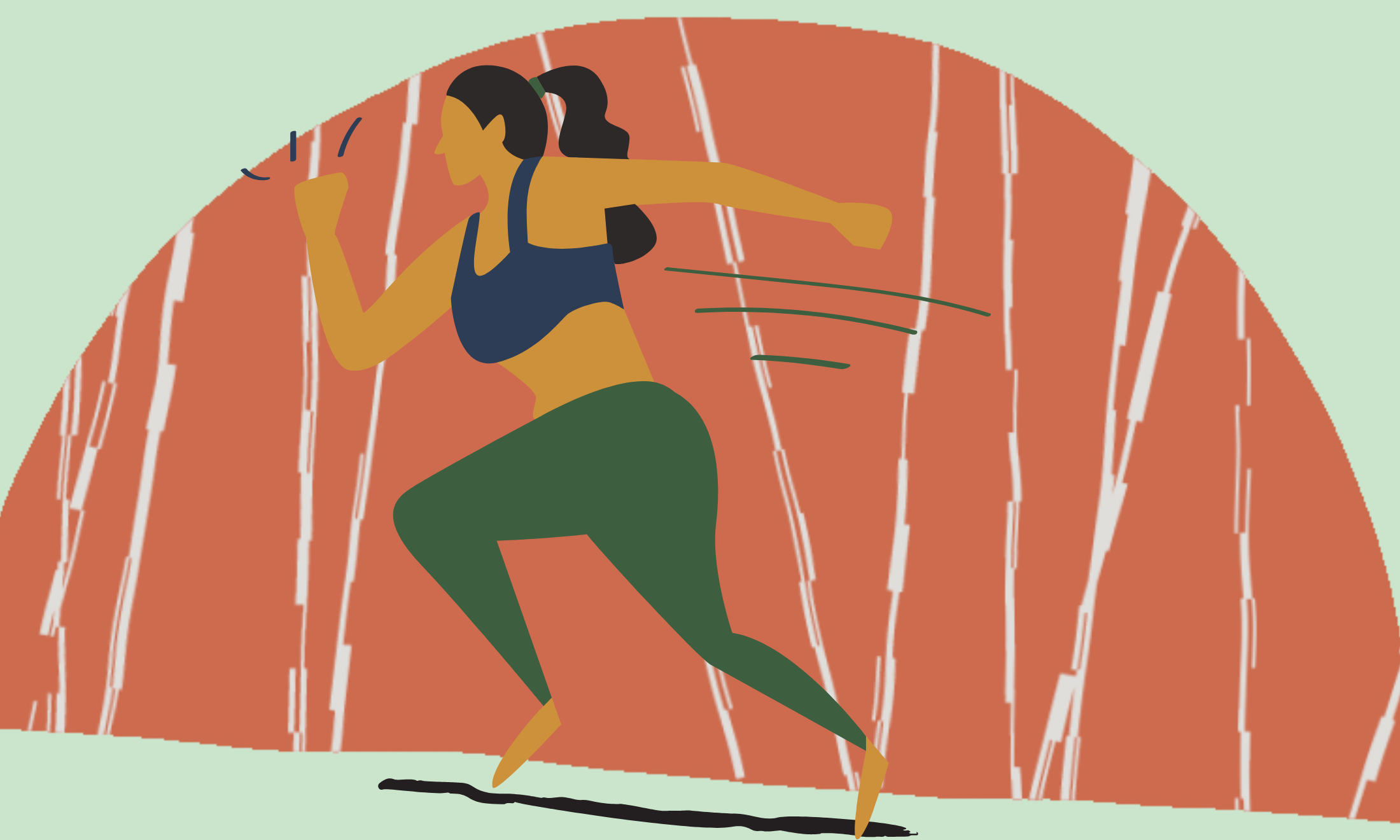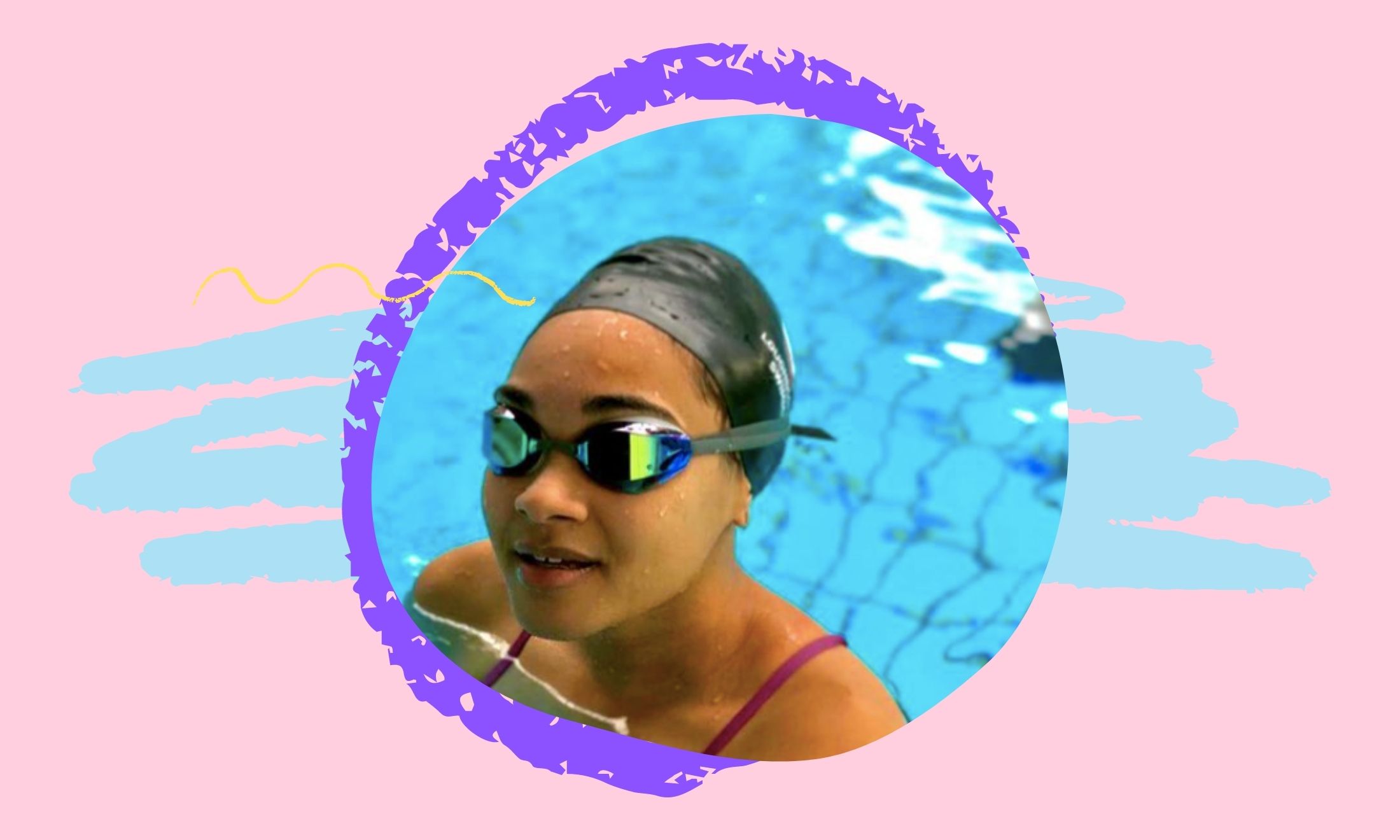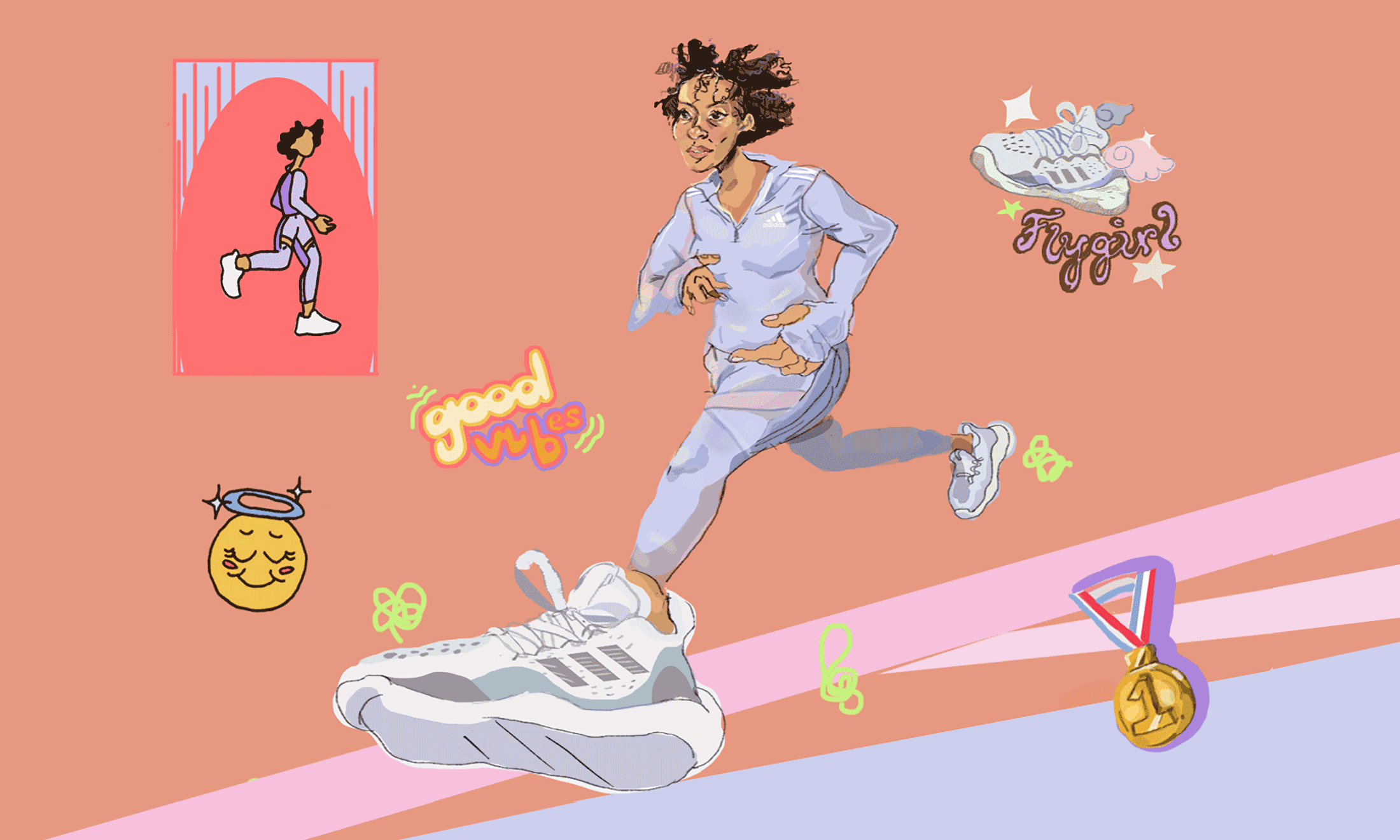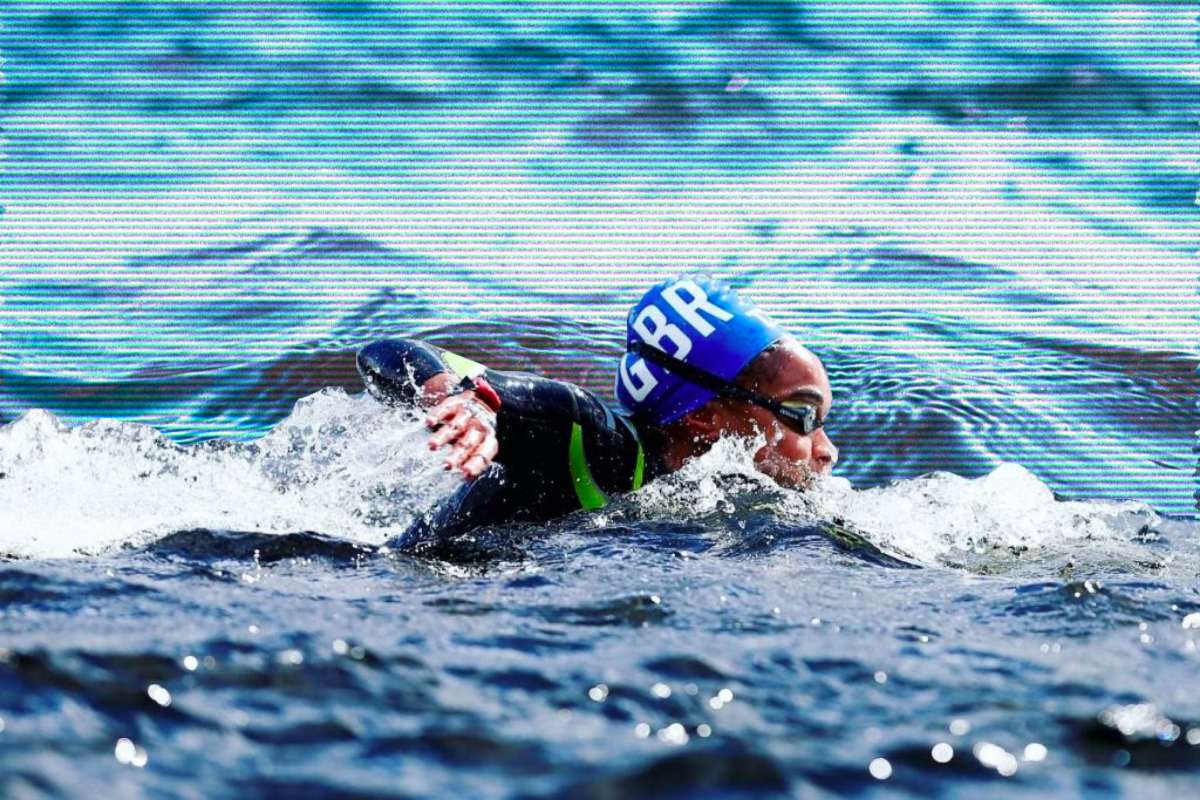Athletics is waging a war of transphobia and misogynoir – and black African women are losing out
In the run up to Tokyo 2021, controversial athletics regulations are showing racist constructions of womanhood will always win the race.
Adenike Fapohunda
07 Jul 2021

Yann Caradec/Flickr/Canva
Christine Mboma and Beatrice Masilingi, at only 18 years old, hold two of the fastest ever recorded times for the women’s 400m. Yet last week, it was reported neither will be able to compete in the Tokyo Olympics because of their naturally occurring high testosterone levels.
Testosterone has become a controversial topic in women’s sports over the past few years. In 2018, amidst bio-essentialist (the belief that a trait is inherently and permanently male and masculine or female and feminine) fears that there was a looming “threat” to fair participation in sport from transgender women, governing sports body World Athletics introduced rules that excluded women with elevated testosterone levels from participating in competitive sport.
The impact of the new regulations became clear immediately. Three-time 800m World Champion and Olympic gold medallist, Caster Semenya – a cis South African woman – was disallowed from participating in her signature event unless she began taking medication to suppress her hormone levels.
Upon the outcry that Semenya’s treatment received, World Athletics defended these regulations. Seb Coe, the body’s president, claimed that the rules would “protect” women and said he was “thankful” that Semenya’s ban had been upheld. The testosterone regulations, he argued, enforced a necessary gender binary in sports.
“Since the ruling, seven black African women have been forced out of their events thanks to their natural hormone levels”
Two years on, the regulations remain in place, despite there being no conclusive evidence that elevated testosterone levels give athletes an unfair competitive advantage and criticisms about the manner in which World Athletics conducted the one study that led to the regulations. Bodies such as the World Medical Association and the United Nations Humans Rights Council have condemned the rules as “unethical” but as the Tokyo Olympics approaches, World Athletics are enforcing them with gusto.
At their core, the rules are a bio-essentialist dictation of what ‘womanhood’ is. And black African women are disproportionately falling afoul of the regulations.
Since the ruling, seven black African women have been forced out of their events thanks to their natural hormone levels. Kenyan runners Maximila Imali, Evangeline Makena and Magaret Wambui, Burundian runner Francine Niyonsaba, Ugandan runner Annet Negesa and Nigerien sprinter Aminatou Seyni have all been faced with a ‘choice’ to either not compete or undergo hormonal treatment, including a gonadectomy – a surgery that removes reproductive organs in order to stop the production of sex steroids including testosterone – in order to avoid the risk of being barred from competition.
Most refused to subject themselves to medical procedures but Annet Negesa, who is intersex, underwent a gonadectomy, which she claims was advised by World Athletics. Since then, she told the New York Times in 2019, her career has been “derailed’ by after-effects of the operation.
The narrow definition of what World Athletics views as a ‘woman’, draws on colonial and racist histories to police the bodies of black – and especially black African – women.
These regulations imply that womanhood is something that can be measured and plotted, but this view of gender always results in an ‘ideal’ and an excluded ‘Other’. In this case, black women who have historically been viewed as ‘masculine’, are the targets of these exclusionary policies, particularly those who have higher testosterone levels, despite the fact they naturally occur.
“Black African athletes who don’t meet white supremacist standards of womanhood – often synonymous with ‘femininity – have become a testing ground of restrictive drugs and surgery”
Western fears about who is or is not a ‘woman’ are currently fuelled by a transphobic moral panic, a fierce culture war being waged even amidst growing evidence that gender is not a binary, that you cannot encircle who is and who isn’t a ‘woman’. This conflict, not of our making, draws black African women in and forces them to be the face of gender non-conformity to societies that are ready to punish anyone who does not fit neatly into their defined gender categories.
The idea that competitive sports, especially the Olympics, are a display of the best sportspeople in the world, is sullied by the continued insistence by World Athletics to exclude athletes in order to protect an antiquated view of womanhood.
The claims of World Athletics that, by excluding predominantly black athletes, they are “protecting” women’s athletics, cannot be seen as anything other than reinforcing the notion that black women are a threat to hard-working white women, who try as they might will never have the same amount of strength. This rhetoric was perhaps exemplified in the infamous reaction of British runner Lynsey Sharp who, upon coming sixth in 2016 Olympic 600m final, burst into tears and appeared to blame Caster Semenya for her low placing, calling racing Semenya “difficult”. Pictures captured Sharp at the finish line, comforting fellow white athlete Melissa Bishop, who finished fourth, seemingly refusing to acknowledge Semenya.
Other white 800m runners also made outright exclusionary remarks after the 2016 final, which saw three black African women on the podium. Polish athlete Joanna Jozik told the press at the time that the trio “raise(d) a lot of controversy,” continuing: “It is a little strange that the authorities do nothing about this. These colleagues have a very high testosterone level, similar to a male’s, which is why they look how they look and run like they run.” How telling.
It’s also notable that these regulations only affect women athletes. Male sporting regulations accept that there will always be people who are stronger, taller and faster. Swimmer Michael Phelps, who holds the record for the biggest haul of Olympic gold medals ever, is so successful in part thanks to genetic factors, including his particular body shape and his naturally lower lactic acid production rate. Where Phelps is celebrated for these differences, black African athletes who don’t meet white supremacist standards of womanhood – often synonymous with ‘femininity – have become a testing ground of restrictive drugs and surgery. These practices are eerily similar to colonial eugenics.
Especially upsetting is that testosterone regulations have affected women from countries that simply do not have the resources to challenge them. In the months after the World Athletics first published the new requirements, Athletics Kenya simply dropped Maximila Imali and Evangeline Makena from their World Relay Roster, rather than contest the ruling. Budgetary constraints might indicate why these athletes lack support. With sports spending in the United Kingdom being seven times that of Kenya’s, it is no wonder that Semenya has been the only affected athlete who has been given substantial governmental backing in her case.
By excluding athletes who do not meet baseless criteria, the Olympics forfeits its claim to be a showcase of the best sportspeople that the world has to offer. Perhaps now a boycott is due from those who still can compete. Because while the removal of black African women might allow new athletes to win a race, giving into transphobic and racist conceptions of womanhood means ultimately, everyone loses.

From #SayHerName to ‘woke’, is the language of Black liberation being looted?

Tragedies like the Knowsley riot and Brianna Ghey’s murder show scapegoating minorities is a deadly game

Finland has passed life-changing laws for trans people. Why can’t England?






